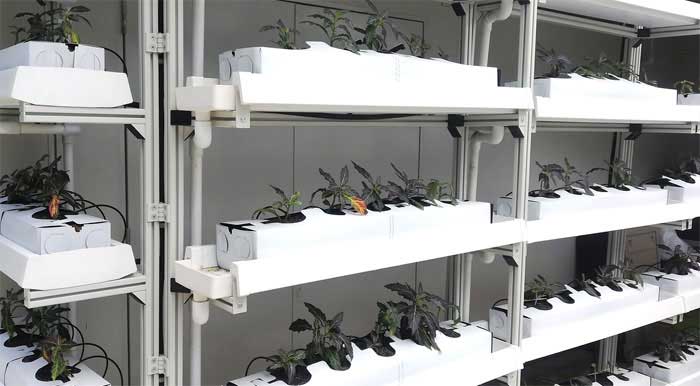There's no end of exciting new problem-solving startups popping up in Singapore. Focusing on alleviating social issues and providing solutions to age-old problems with new technology, these social enterprises are set to change the fabric of Singaporean society in the best way possible. From training underprivileged local women, enabling them to build new skills, to environmentally focused brands which promote eco-friendly initiatives like plastic use reduction, there's no shortage of new companies to support.
The Kint Story (photo)
Set up by millennial superwomen Yushu Huang and Elisa Goh, The Kint Story tackles a huge issue in Singapore - the amount of textile waste that's thrown away. In 2018, only 6% of all textile waste was recycled, so the entrepreneurs took this into their own hands. They founded e-commerce startup The Kint Story, which brands itself as an online thrift store, selling second-hand clothes with a twist - the donors are fashion influencers, creating a unique story behind each of the items sold. Using a unique narrative in order to increase the appeal of second hand fashion, The Kint Story is set to expand to include regional markets in the near future.
Bettr Barista
Merging together the growing demand for artisan coffee with the needs of marginalised communities, Bettr Barista is a coffee academy and roastery which offers three to six month barista training schemes. With women attending the course ranging from age 15 to 50, social workers refer potential trainees to the programme, who then build up their coffee-skills, as well as participating in therapy sessions, a paid internship with the scheme's cafe partners and around 52-hours worth of organised physical activities, from yoga to canoeing. The scheme also operates using the government's SkillsFuture training scheme, which offers all Singapore citizens credits to use towards gaining new skills, in everything from IT to engineering.
SDI Academy
A huge issue that recent migrants to Singapore face is the language barrier. With English as the main language used in businesses and in offices, many blue-collar workers and recent regional migrants face difficulties in finding work due to their language skills. SDI Academy is a social enterprise that aims to solve this issue by running free English classes and courses in other employment and entrepreneurial skills in order to help new citizens integrate into Singaporean society and increase their wellbeing. Founded by Sazzad Hossain, who initially arrived in Singapore from Bangladesh without English skills, this startup has changed the lives of thousands of people, and is set to continue to empower its participants in the same manner that Sazzad experienced himself.
hello flowers!
The rustic bouquets and wreaths that hello flowers! produces are made in a special way. Describing itself as a social enterprise floral studio, the founder Annie worked previously as a social worker, helping families who have experienced violence, and this opened her eyes to what she could achieve through her work. The florists she employs and trains are those who are unable to work fulltime for various reasons, including poor health conditions and lack of education. A firm believer in the therapeutic effects of nature, hello flowers! kills two birds with one stone, empowering women and helping to improve their wellbeing, while also improving the wellbeing of the people who purchase their beautifully crafted products.
Seastainable Co.
Small business Seastainable Co. is an award-winning social enterprise and start up which promotes ethical textiles, fashion and jewellery. Supporting marine conservation efforts around Singapore and Southeast Asia, the company also works in Vietnam, Malaysia, Indonesia and the Philippines. They push their initiatives in multiple ways, from channelling their profits into local grassroots environmental organizations, and encouraging people to reduce their plastic consumption. The company produces eco-friendly products only, from metal straws to plastic-free utensils sets. Founded by Samantha Thian, who had previously worked in the marine conservation field in Singapore and the Philippines, the company has contributed over $30,000 to conservation programmes across five countries.




